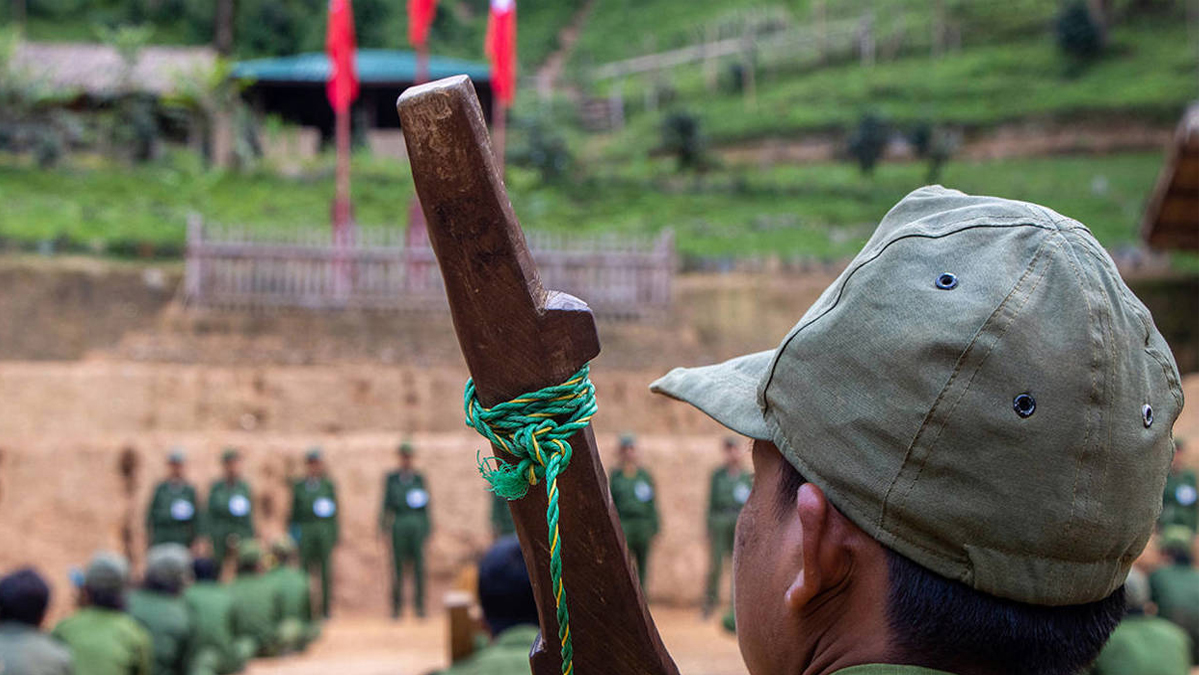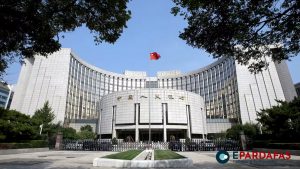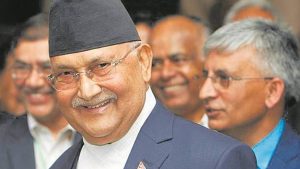
China Tightens Control as Myanmar’s Rebel Forces Gain Ground Near Border
In October last year, an alliance led by three rebel armies seized significant territory near Myanmar’s border with China from the ruling military junta. Beijing, which initially turned a blind eye, is now adopting a stricter stance as the rebels push deeper into contested regions of Myanmar, threatening to destabilize the military government.
After a year of intensifying conflict, rebel forces have pushed the military out of vital borderlands, advancing toward Myanmar’s contested heart. In response, China has closed off key border crossings and cut vital imports to rebel-held territories. Analysts suggest that these actions are intended to dissuade the rebel forces from advancing on Mandalay, Myanmar’s cultural capital.
China, which had previously tolerated the rebel alliance to crack down on crime in the region, is now concerned about the rapid decline of Myanmar’s military, which Beijing still views as essential for regional stability. Additionally, China is wary of rebel groups’ alliances with the U.S.-backed National Unity Government (NUG), the parallel government opposing the junta.
Rebel Success and Chinese Intervention
The conflict reached a turning point in August when rebel forces captured Lashio, a northeastern town, marking the first time in Myanmar’s history that a regional military command fell to rebel forces. The rapid victory came as a shock to both Myanmar’s military and China.
Following Lashio’s collapse, China intensified its pressure on the rebel alliance, including closing border gates and cutting off supplies to areas newly controlled by the Myanmar National Democratic Alliance Army (MNDAA), one of the key rebel groups. Rebel leader Maung Saungkha noted that the lack of access to essential goods and medical supplies has put the rebels in a precarious position, while also reducing the flow of arms and ammunition.
China’s tightening of border controls, paired with its diplomatic efforts, underscores its intention to prevent further instability. Shortly after Lashio’s fall, Chinese Foreign Minister Wang Yi met with Myanmar’s junta leader, Min Aung Hlaing, emphasizing China’s opposition to chaos and conflicts. China’s military also held joint-fire exercises along the border in a display of strength.
Complex Dynamics Between China, Rebels, and the Junta
Despite initial backing for the Three Brotherhood Alliance—comprising rebel groups including the MNDAA—China is now hesitant to see the junta collapse. A destabilized Myanmar could jeopardize China’s investments and trade routes, especially along the 1,250-mile border shared by the two countries. Beijing has also warned rebel groups against expanding their territory and cooperating with foreign nations opposed to China.
Some rebel groups, however, have made significant advances, controlling six out of eight border gates along the Chinese frontier, cutting off billions of dollars in trade for the military junta. Nonetheless, the MNDAA has publicly stated it would not expand its territory or cooperate with nations hostile to China, signaling a possible readiness for a ceasefire under Chinese mediation.
Despite China’s growing influence over the situation, other rebel leaders, including those aligned with the NUG, remain determined to continue their fight against the military. Maung Saungkha, a commander in Mandalay, acknowledged China’s influence but argued that rebel forces need to unite and prepare to counter the pressure from Beijing.
A Turning Point in Myanmar’s Conflict
As Myanmar’s military struggles to maintain control, internal instability has also grown. Since the 2021 coup that ousted civilian leader Aung San Suu Kyi, junta leader Min Aung Hlaing has frequently rotated regional military commanders in an effort to maintain control and prevent dissent. However, these rapid rotations have undermined the military’s effectiveness, particularly in the areas bordering China.
Amidst growing pressure, Min Aung Hlaing dismissed the commander in charge of Lashio during the offensive, citing insubordination. The replacement commander was unable to enter the city during the fighting, further highlighting the military’s internal challenges.
China’s actions in recent months reflect its desire to maintain stability in Myanmar, but its relationship with the junta and rebel forces remains fraught with complexity. As the conflict progresses, the situation near the China-Myanmar border will likely continue to influence broader geopolitical dynamics in the region.













Comments